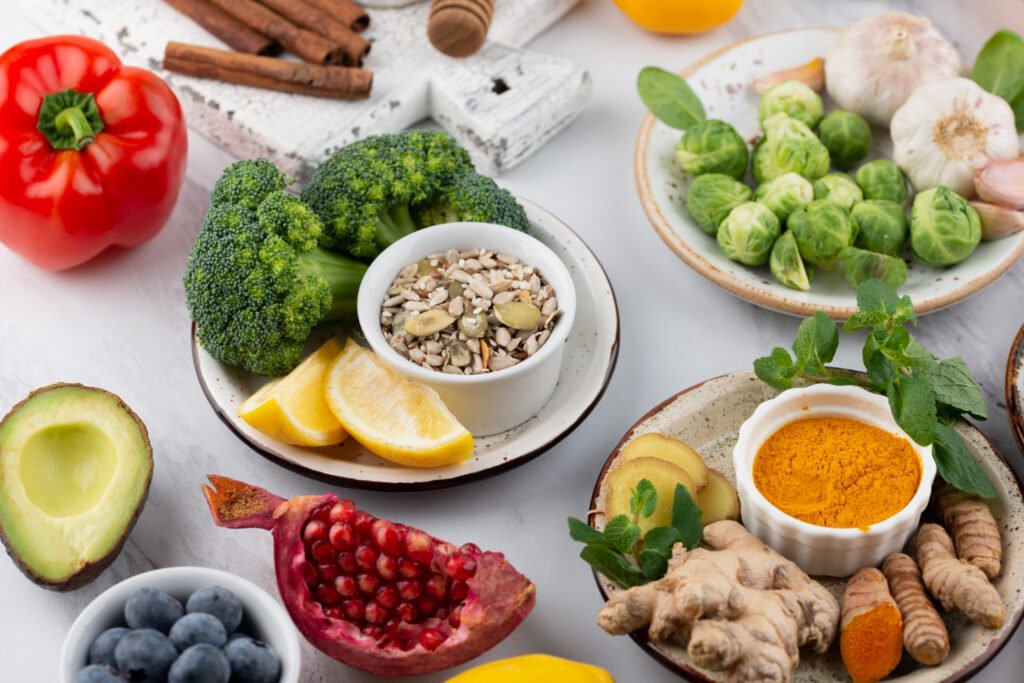
In this article
Overview
Serotonin, often called the “feel-good” hormone, plays a vital role in our mood, appetite, and sleep. While it’s commonly known that serotonin is a neurotransmitter that affects our well-being, not everyone is aware of how diet can influence its levels. The “Serotonin Diet” is a concept that focuses on consuming foods that naturally boost serotonin levels, potentially leading to improved mood, better sleep, and overall enhanced mental health. In this article, we will explore various foods that can help increase serotonin production and how incorporating them into your diet can benefit your mental and physical well-being.
Understanding Serotonin and Its Importance
Serotonin is a neurotransmitter that significantly impacts various bodily functions, including mood regulation, sleep cycles, and even digestion. Low serotonin levels have been linked to conditions such as depression, anxiety, and insomnia. While medications like SSRIs (Selective Serotonin Reuptake Inhibitors) are commonly prescribed to increase serotonin levels, certain foods can naturally boost serotonin production, offering a more holistic approach to mental health.
Foods Rich in Tryptophan
Tryptophan is an essential amino acid that your body uses to produce serotonin. Including tryptophan-rich foods in your diet is one of the most effective ways to naturally boost serotonin levels. Here are some key foods to consider:
- Turkey and Chicken: Poultry is a well-known source of tryptophan, making it a staple in the Serotonin Diet. Regular consumption of turkey or chicken can support serotonin production.
- Eggs: Eggs, particularly the yolks, are rich in tryptophan and other essential nutrients that support brain health.
- Nuts and Seeds: Almonds, walnuts, pumpkin seeds, and sunflower seeds are excellent sources of tryptophan and also provide healthy fats that are crucial for brain function.
Carbohydrates
Carbohydrates play a crucial role in making tryptophan more available to the brain. When you eat carbohydrates, your body releases insulin, which helps clear other amino acids from the bloodstream, allowing tryptophan to cross the blood-brain barrier more easily. This process ultimately enhances serotonin production. Some healthy carbohydrate options include:
- Whole Grains: Brown rice, oatmeal, and whole wheat bread provide complex carbohydrates that sustain energy levels while promoting serotonin production.
- Fruits: Fruits like bananas, pineapples, and plums not only offer carbohydrates but also contain other vitamins and minerals that support overall health.
- Vegetables: Starchy vegetables like sweet potatoes and squash are excellent sources of complex carbohydrates and can be easily incorporated into your meals.
Omega-3 Fatty Acids
Omega-3 fatty acids are essential for brain health and have been shown to enhance serotonin production and function. These healthy fats are crucial for maintaining the fluidity of brain cell membranes, which facilitates effective neurotransmitter signaling. To ensure adequate omega-3 intake, consider adding the following foods to your diet:
- Fatty Fish: Salmon, mackerel, and sardines are rich in omega-3s and are also excellent sources of vitamin D, another nutrient linked to serotonin production.
- Flaxseeds and Chia Seeds: These plant-based sources of omega-3s are versatile and can be easily added to smoothies, yogurt, or oatmeal.
- Walnuts: Walnuts are not only a good source of tryptophan but also provide a healthy dose of omega-3 fatty acids
Fermented Foods
Approximately 90% of the body’s serotonin is produced in the gut, which means that gut health plays a significant role in serotonin production. Fermented foods are rich in probiotics, which support a healthy gut microbiome and, in turn, promote serotonin synthesis. Some fermented foods to include in your diet are:
- Yogurt: Choose plain, unsweetened yogurt with live cultures to get the most probiotic benefits.
- Kimchi and Sauerkraut: These fermented vegetables are rich in probiotics and can add a flavorful punch to your meals.
- Kefir: This fermented dairy drink is packed with probiotics and can be enjoyed on its own or added to smoothies.
Dark Chocolate
Dark chocolate is not only a delicious treat but also a natural mood enhancer. It contains compounds like theobromine and caffeine that can stimulate the brain and improve mood. Additionally, dark chocolate is rich in antioxidants and flavonoids that support brain health. For the best results, opt for dark chocolate with at least 70% cocoa content.
Vitamin B6
Vitamin B6 is essential for converting tryptophan into serotonin. Without adequate B6 levels, your body cannot efficiently produce serotonin, even if you consume enough tryptophan. Foods rich in vitamin B6 include:
- Chickpeas: A versatile legume that can be added to salads, soups, or made into hummus.
- Tuna: A great source of both vitamin B6 and omega-3 fatty acids, making it a valuable addition to the Serotonin Diet.
- Potatoes: Potatoes are not only a good source of complex carbohydrates but also provide vitamin B6.
The Role of Lifestyle in Serotonin Production
While diet plays a crucial role in serotonin production, lifestyle factors like regular exercise, adequate sleep, and exposure to natural sunlight are equally important. Engaging in activities that bring you joy and relaxation can also help maintain healthy serotonin levels.
The Takeaway
Incorporating serotonin-boosting foods into your diet is a natural and effective way to enhance your mood, improve sleep, and support overall mental well-being. The Serotonin Diet is not about drastic changes or restrictions but rather about making mindful choices that contribute to a healthier, happier life. By understanding the connection between food and serotonin, you can take proactive steps toward better mental health through the power of nutrition
A Quick Review
This article explores the connection between diet and serotonin, a key neurotransmitter that influences mood, sleep, and overall well-being. It highlights various foods known to naturally boost serotonin levels, such as those rich in tryptophan, omega-3 fatty acids, and essential vitamins. The article also explains how lifestyle factors like exercise and sleep play a role in maintaining healthy serotonin levels. It provides practical tips on incorporating these serotonin-boosting foods into your daily diet, offering a comprehensive guide for enhancing mood and mental health through nutrition.
Frequently Asked Questions
Can food really boost serotonin levels?
Yes, certain foods rich in tryptophan, omega-3 fatty acids, and vitamins like B6 and D can help increase serotonin production, enhancing mood and overall well-being.
What are the best foods to include in a serotonin-boosting diet?
Foods like turkey, eggs, nuts, seeds, fatty fish, dark chocolate, and fermented foods are excellent for naturally boosting serotonin levels.
How does tryptophan affect serotonin production?
Tryptophan is an amino acid that the body uses to produce serotonin. Consuming tryptophan-rich foods can support higher serotonin levels, improving mood and sleep.
Are there any lifestyle changes that support serotonin production?
Yes, regular exercise, adequate sleep, exposure to sunlight, and stress management are all important factors in maintaining healthy serotonin levels.
Can eating carbohydrates improve serotonin levels?
Yes, consuming healthy carbohydrates like whole grains and fruits can help increase the availability of tryptophan in the brain, thus boosting serotonin production.
Is it possible to overconsume serotonin-boosting foods?
While it’s important to include serotonin-boosting foods in your diet, balance is key. Overconsumption may lead to nutritional imbalances or excess calorie intake.











